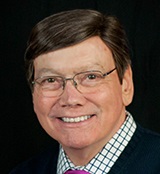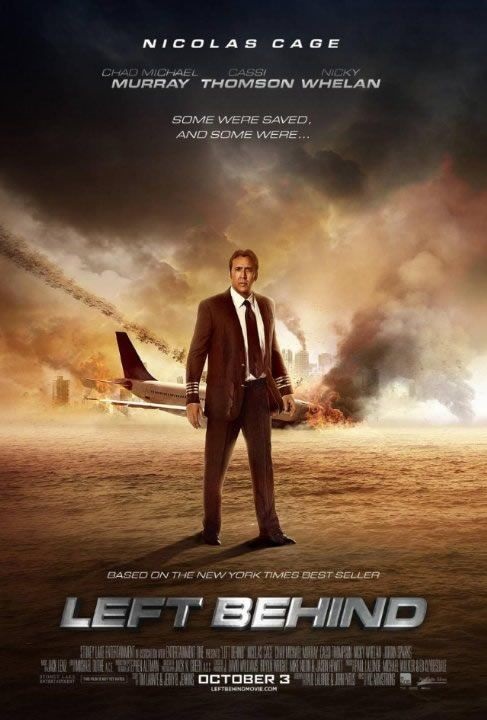By Bob Allen
With Nicholas Cage starring in the rapture-themed thriller Left Behind coming out in theaters Oct. 3, two Southern Baptist Convention seminaries recently announced endowed professorships with an emphasis including Bible prophecy.
Both Southeastern Baptist Theological Seminary in Wake Forest, N.C., and Southwestern Baptist Theological Seminary in Fort Worth, Texas, announced large gifts to endow the Jesse Hendley Chair of Biblical Theology.
The professorships are named after an evangelist and student of New Testament Greek best known as host of the “The Radio Evangelistic Hour,” which began in 1931 and continued until his death in 1994 at the age of 87.
There is no indication that the announcements by the seminaries and the premiere of the Left Behind remake are connected. Still, observers expect the box-office release of the apocalyptic thriller to ramp up popular interest in “eschatology,” the branch of Christian theology concerned with the study of “last things” in Scripture.
Southeastern Seminary sponsored a Day of Prophecy Sept. 4, presenting the pre-millennial theology the Jesse David Hendley Foundation was established in part to defend.
 Ed Hindson, a Liberty University professor who serves as president of World Prophetic Ministry and Bible teacher on “The King is Coming” telecast, opened the conference with a chapel sermon titled “Can We Still Believe in the Rapture?”
Ed Hindson, a Liberty University professor who serves as president of World Prophetic Ministry and Bible teacher on “The King is Coming” telecast, opened the conference with a chapel sermon titled “Can We Still Believe in the Rapture?”
“Virtually every Christian denomination on the planet has somewhere in its doctrine, theological statement or affirmation a belief in the Second Coming of Christ,” said Hindson, chairman of the Hendley Foundation board and author of numerous books on Bible prophecy. “The whole point of the Ascension was ‘I will return.’”
Hindson said differences occur over how to interpret various Bible passages that refer to Jesus’ Second Coming. With the exception of preachers like him who hold a view of a pre-tribulation rapture, he said, many today behave as if the Rapture will never come, a view he says doesn’t take seriously passages like First Thessalonians Chapter 4.
Seminary President Daniel Akin introduced Hindson, saying that while Southeastern is a “confessional” institution, the Baptist Faith and Message is written broadly enough to accommodate a variety of views on the Second Coming.
Akin said the pre-millennial, pre-tribulation Rapture is the view most commonly held by Southern Baptists in the pew and nearly every SBC president since 1979, but prior to the “conservative resurgence,” it was viewed with disdain by faculty at the six SBC seminaries.
Hindson revisited Akin’s point to note the “pre-trib” Rapture it is also the preferred view of “some very significant pastors” like Chuck Swindoll, David Jeremiah, Ronnie Floyd, Charles Stanley and Johnny Hunt and scholars including Southwestern President Paige Patterson and “our beloved Dr. Akin.”
“Why in the world do those guys actually believe this?” he asked.
The afternoon schedule included a lecture by William Watson, a professor of history at Colorado Christian University, examining views on the Rapture expressed prior to John Nelson Darby, an Anglo-Irish Bible teacher regarded as the “father of dispensationalism,” an end-times theory he developed in the 1830s popularized in the 20th century by footnotes in the widely circulated Scofield Reference Bible.
 After that came a lecture by Moody Bible Institute professor Michael Rydelnik on “Israel, the Church, and the Tribulation.” Then followed a panel discussion, with a final presentation Thursday night on “The Rapture and the Day of the Lord” by Craig Blaising, executive vice president and provost at Southwestern Baptist Theological Seminary and the first professor there to occupy the Hendley Chair. Southwestern Seminary explored similar themes in chapel messages Aug. 26, 27 and 28.
After that came a lecture by Moody Bible Institute professor Michael Rydelnik on “Israel, the Church, and the Tribulation.” Then followed a panel discussion, with a final presentation Thursday night on “The Rapture and the Day of the Lord” by Craig Blaising, executive vice president and provost at Southwestern Baptist Theological Seminary and the first professor there to occupy the Hendley Chair. Southwestern Seminary explored similar themes in chapel messages Aug. 26, 27 and 28.
Hindson said the purpose of Bible prophecy is not to frighten Christians, but rather to prepare them for the Lord’s return by holy living and sharing the gospel. As to when that may occur, Hindson said nobody knows, but world events including unrest in the Middle East, the rise of a global economy and the proliferation of weapons of mass destruction suggest a date sooner rather than later.
“How much time do we have left?” he asked. “I don’t know. I can’t tell you if you’ve got five minutes, five years, 50 years, but I don’t think the human race has 500 years.’
“Given the depravity of the human heart, the proclivity toward destruction, the potential of the weapons of mass destruction that are at our disposal, it’s only a matter of time before somebody uses them,” Hindson said. “So that alone ought to tell us that no matter what your view is, you’re getting closer and closer to the time when he will come.”
Stoney Lake Entertainment recently released the official trailer of Left Behind: The End Begins, with Nicholas Cage reprising the role of Kirk Cameron in a Christian-based version of the film in 2000 based on a best-selling series of novels by Tim LaHaye and Jerry Jenkins.
The blockbuster version is expected to be far different from the straight-to-DVD release 14 years ago, but the filmmakers predict Christian audiences will be pleased with the “clarity” with which it presents the Rapture.
It will join a string of religion-based films coming recently out of Hollywood, and it isn’t the first to focus on the Rapture. An HBO series, The Leftovers, follows the residents of a fictional town after 2 percent of the world’s population has inexplicably disappeared.
